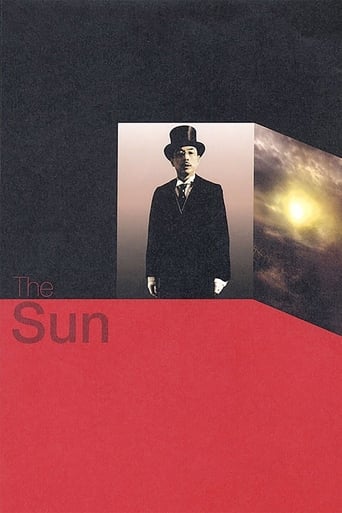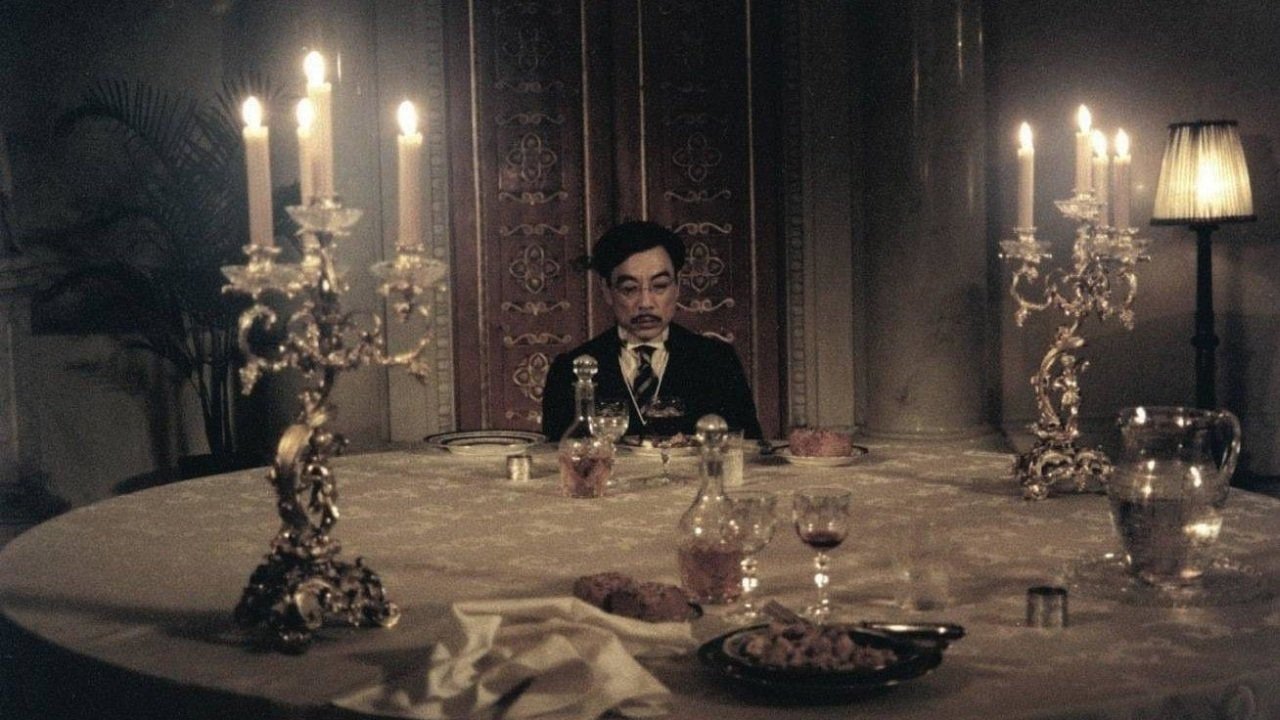treywillwest
A quietly beautiful film by Sokurov. As usual, the colors amaze, but not in the director's signature close-ups. (There are hardly any until the last scene.) This implies a lack of conventional humanism, and indeed it is so. Instead, we are asked to identify with a parasitic aristocrat- Emperor Hirohito- who wishes to renounce being worshiped as a god, if only to preserve his privileges, in the face of the American occupation of Japan. At first he seems the victim of a sick, heretical culture until you realize how much he understands the rules of the game. Finally, he seems all the more human for understanding those rules. Where does that leave the audience who identifies with him?
CountZero313
Sokurov's evocative account of Hirohito's fall from Heaven is mesmerizing in terms of narrative structure, photography and Ogata's performance. Ogata quite literally puts his life on the line by taking this role; he clearly feeds off that tension to provide a quite stunning portrayal of one of the 20th century's leading figures, one whose absence from artistic portrayal stands in juxtaposition to the pivotal role he played in leading his country through world war, nuclear destruction, to revival as an economic superpower. Think about Hitler, Mussolini, Churchill, Eisenhower, Stalin and Hirohito. Which one do you feel least able to describe? Sokurov and Ogata play on that enigmatic image. Ogata chooses to take the physical aspects of Hirohito that we know - the twitches, stiffness, child-like expressions - and amplify them to heighten the unreality of the situation, complementing Sokurov's other- worldly sepia tinted grainy photography. The film does not strive for historical accuracy. It is unlikely that Macarthur's interpreter would have been a nationalist zealot. The casting of Robert Dawson as Macarthur is the film's biggest failing - the man is more wooden than Sherwood forest. And the American photographers look like American students studying in Russia trying to earn a few rubles as extras - which is probably what they are. It is a shame that budget limitations and casting errors detract from what could have been a sublime artistic achievement. Ogata, in particular, should have been served better for the riveting performance he gives here. The Sun polemically considers what might have happened when God became man. No future attempt to portray the life of Hirohito on celluloid can avoid referring to this film. Few will emulate it. The genius here is in exploring Hirohito the man and his inadequate attempts to comprehend the momentous events that engulf him at the end of the war. By staying with him, and not pausing to bow one's head before Hiroshima, Nagasaki, or the fire-bombing of Tokyo, Sokurov provides a glimpse of a man who remains, even after his death in the late eighties, a complete enigma. The transition from deity to man happens briefly, but palpably, at the end, when Hirohtio the figurehead is shown to also be husband and father. The Sun is food for thought on a much neglected man.
Chris Knipp
Sokurov's haunting recreation of how Emperor Hirohito spent the last hours before the Japanese surrender, this is a miraculous work, and it provided the most powerful aesthetic and emotional experience of the 2005 New York Film Festival, whose official selections were not lacking in depth and fine film-making. "The Sun" depicts a man who knows very well what is going on but lives in a cocoon, in a state of detachment and ineffectuality that becomes strangely heartrending. Issey Ogata's performance as the Emperor easily competes for hypnotic intensity with Bruno Ganz's Hitler in the German film "Downfall" -- but with a very different sort of bunker and a very different kind of man: a silent, immaculate country house with a few faithful servants in attendance; a small, frail but upright and dignified personage who can easily explain the causes of the Japanese defeat to his general staff but has never learned to dress himself or open a door. Even on this day he is more comfortable browsing through photos of his family and American movie stars, dictating notes on marine biology, and writing poetry. Despite the disgrace, he is selflessly happy that peace has come. He inks a brush to write a statement to his absent son, but instead drafts a few verses about the weather. Later he is taken to see Eisenhower, and then brought back again to dine with the general. He enjoys the wine and the meat and has his first taste of a Havana cigar. The Americans conclude that the Emperor is like a child. "What's it like being a living god?" Ike asks. And speaking, to the dismay of the Japanese interpreter, in perfect English, Hirohito says, "What can I tell you? You know, it is not easy being Emperor." These are just a few details in a film rich in telling ones. Simply enumerating them can't explain this film's slow, cumulative emotional wallop -- or the lovely, fantastic, dreamlike landscape images toward the end. This film about one of modern history's most humiliating defeats is a stunning triumph. "The Sun" demonstrates unmistakably that Andrei Sokurov is one of the world's great filmmakers.
ottaky
I've waited 24 hours before reviewing The Sun in the hope that a day to reflect might produce some kind of insight into what I saw - unfortunately, that hasn't happened, so you're stuck with the same thoughts that I had yesterday.If you're looking for some enlightenment into what goes through the mind of a god soon to be demoted to a mere mortal in the face of a crushing national defeat, you won't find much to help you out in The Sun. Unless you're one of those people who believes that those thoughts would have something to do with crabs.So, what do you get in return for a ticket? The film itself is very dark - and by that I mean that there's very little light. Shot almost exclusively indoors with very little additional lighting the result is an effect that would be interesting in a single photograph, but becomes tiresome over the course of 110 minutes. Yes, it builds atmosphere, but it just became irritating to me.Issei Ogata as Hirohito is very good, but his inability to keep his mouth closed and immobile when he's not speaking seems to be an embellishment too far (unless the real Hirohito actually did this). Most of the Japanese actors are excellent, in fact.Robert Dawson as MacArthur is terrible - calling him wooden would be to slander actual wood.The soundtrack is quite bizarre but, for the most part, works well to create a background tension which the script can't quite manage. If you've ever wondered what a segment of Wagner's Ring Cycle would sound like juxtaposed against the beat of a radio's heterodyne, this could be your film. Sometimes the only sound is the ticking of the clock - which is probably intentional again but ....I realise that I'm not building a very good case for going to see this film, but the truth of the matter is that, as a whole, I found that I couldn't help myself from watching despite its flaws.Watching this film is an interesting experience, but it will probably only appeal to you if you enjoy something that's quite challenging to sit through and you can forgive a script that ignores what could be interesting directions in favour of exploring the mundane.


 AD
AD


